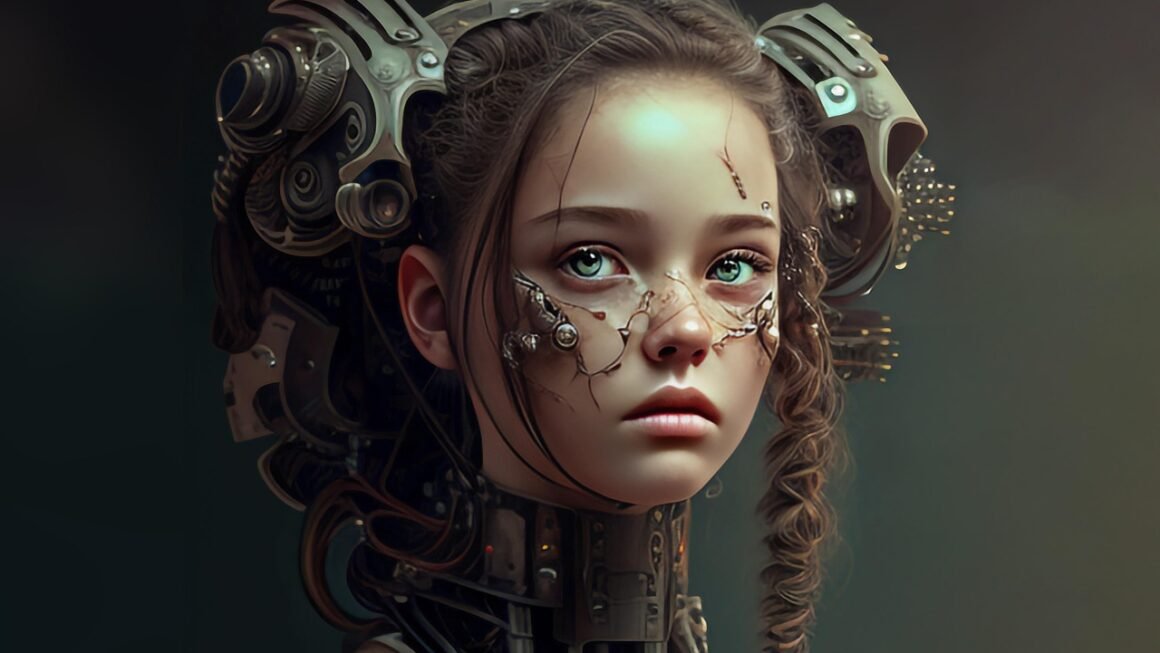Imagine a world where tasks are automated, decisions are optimized, and your digital life adapts seamlessly to your needs. This isn’t just science fiction anymore; it’s the burgeoning reality powered by intelligent agents. These sophisticated software entities are rapidly transforming industries and our everyday experiences, offering unprecedented efficiency and personalization. Let’s delve into the exciting world of intelligent agents and explore their capabilities, applications, and the transformative impact they’re having on our lives.
What are Intelligent Agents?
Defining Intelligent Agents
Intelligent agents are autonomous entities, often software-based, that perceive their environment, reason, learn, and act to achieve specific goals. Unlike traditional programs that execute pre-defined instructions, intelligent agents exhibit a degree of autonomy and adaptability, allowing them to respond dynamically to changing circumstances. They are characterized by their ability to:
- Perceive: Gather information from their environment through sensors or data inputs.
- Reason: Process and analyze the gathered information using AI algorithms.
- Learn: Improve their performance over time through experience and feedback.
- Act: Execute actions to achieve their objectives.
Key Characteristics of Intelligent Agents
Several key characteristics distinguish intelligent agents from other types of software:
- Autonomy: The ability to operate independently without direct human intervention.
- Reactivity: The ability to respond to changes in the environment in a timely manner.
- Proactiveness: The ability to take initiative and pursue goals without explicit instructions.
- Social Ability: The ability to communicate and cooperate with other agents or humans.
- Adaptability: The ability to learn and adjust their behavior based on experience.
Examples of Intelligent Agents in Action
Intelligent agents are already widely deployed in various domains, including:
- Virtual Assistants: Siri, Alexa, and Google Assistant use intelligent agents to understand voice commands, answer questions, and perform tasks.
- Recommendation Systems: Netflix, Amazon, and Spotify use intelligent agents to suggest personalized content based on user preferences and behavior.
- Chatbots: Customer service chatbots use intelligent agents to provide instant support and answer frequently asked questions.
- Spam Filters: Email spam filters use intelligent agents to identify and filter out unwanted emails.
- Search Engines: Google and other search engines use intelligent agents to crawl the web, index content, and provide relevant search results.
The Architecture of Intelligent Agents
Perception and Sensing
The first step for an intelligent agent is to gather information about its environment. This is achieved through various sensors or data inputs that allow the agent to “perceive” the world around it.
- Sensors: Physical sensors can be used to gather data about the physical world, such as temperature, pressure, or location.
- Data Inputs: Software-based agents can receive data from various sources, such as databases, APIs, or user interfaces.
- Data Preprocessing: The raw data collected from sensors or inputs is often preprocessed to clean, filter, and transform it into a usable format.
Reasoning and Decision-Making
Once the agent has gathered information, it needs to reason about it and make decisions about what actions to take. This involves using AI algorithms and techniques to analyze the data and determine the best course of action.
- Knowledge Representation: The agent’s knowledge about the world is represented using various techniques, such as rule-based systems, semantic networks, or machine learning models.
- Inference Engines: Inference engines use the agent’s knowledge to draw conclusions and make predictions about the environment.
- Decision-Making Algorithms: Various algorithms, such as decision trees, Bayesian networks, or reinforcement learning, can be used to make decisions about what actions to take.
Action and Execution
After making a decision, the agent needs to execute the action. This involves interacting with the environment to achieve its goals.
- Actuators: Physical actuators, such as motors or robotic arms, can be used to interact with the physical world.
- Software Interfaces: Software-based agents can interact with other software systems through APIs or other interfaces.
- Feedback Loops: The agent monitors the results of its actions and uses this feedback to improve its future performance.
Applications Across Industries
Healthcare
Intelligent agents are revolutionizing healthcare by automating tasks, improving diagnostics, and personalizing treatment plans.
- Diagnosis and Treatment: AI-powered diagnostic tools can analyze medical images and patient data to identify diseases and recommend treatment plans.
- Medication Management: Intelligent agents can help patients manage their medications by providing reminders, tracking dosages, and monitoring side effects.
- Patient Monitoring: Wearable sensors and remote monitoring systems can use intelligent agents to track patients’ vital signs and alert healthcare providers to potential problems.
- Example: IBM Watson Health has been used to assist oncologists in making treatment decisions for cancer patients.
Finance
Intelligent agents are transforming the financial industry by automating trading, detecting fraud, and providing personalized financial advice.
- Algorithmic Trading: High-frequency trading algorithms use intelligent agents to execute trades based on real-time market data.
- Fraud Detection: Intelligent agents can analyze transaction data to identify fraudulent activity and prevent financial losses.
- Personalized Financial Advice: Robo-advisors use intelligent agents to provide personalized investment advice based on users’ financial goals and risk tolerance.
- Example: Many banks are using AI-powered chatbots to provide customer support and answer frequently asked questions.
Manufacturing
Intelligent agents are optimizing manufacturing processes by automating tasks, improving quality control, and predicting equipment failures.
- Robotics and Automation: Intelligent robots can perform tasks such as welding, painting, and assembly with greater precision and efficiency than humans.
- Quality Control: Machine vision systems can use intelligent agents to inspect products for defects and ensure quality.
- Predictive Maintenance: Intelligent agents can analyze sensor data from equipment to predict when maintenance is needed, preventing costly downtime.
- Example: Companies like Siemens are using digital twins powered by intelligent agents to simulate and optimize manufacturing processes.
Retail
Intelligent agents are enhancing the retail experience by personalizing recommendations, improving customer service, and optimizing supply chains.
- Personalized Recommendations: E-commerce websites use intelligent agents to recommend products based on users’ browsing history, purchase history, and demographics.
- Chatbots and Virtual Assistants: Retailers use chatbots to provide customer support, answer questions, and assist with purchases.
- Supply Chain Optimization: Intelligent agents can optimize supply chain logistics by predicting demand, managing inventory, and routing shipments.
- Example: Amazon uses sophisticated recommendation algorithms to suggest products and personalize the shopping experience for each customer.
The Future of Intelligent Agents
Advancements in AI and Machine Learning
The future of intelligent agents is closely tied to advancements in AI and machine learning. As AI algorithms become more sophisticated, intelligent agents will become more capable and versatile.
- Deep Learning: Deep learning techniques are enabling intelligent agents to learn from vast amounts of data and perform complex tasks, such as image recognition and natural language processing.
- Reinforcement Learning: Reinforcement learning is allowing intelligent agents to learn through trial and error, enabling them to solve complex problems in dynamic environments.
- Natural Language Processing (NLP): Advances in NLP are enabling intelligent agents to understand and respond to human language with greater accuracy and fluency.
Ethical Considerations
As intelligent agents become more pervasive, it’s important to consider the ethical implications of their use.
- Bias and Fairness: AI algorithms can inherit biases from the data they are trained on, leading to unfair or discriminatory outcomes.
- Privacy and Security: Intelligent agents can collect and process vast amounts of personal data, raising concerns about privacy and security.
- Transparency and Accountability: It’s important to ensure that intelligent agents are transparent and accountable for their actions.
The Rise of Autonomous Systems
The future will see a proliferation of autonomous systems powered by intelligent agents, transforming industries and reshaping our lives.
- Self-Driving Cars: Self-driving cars will use intelligent agents to navigate roads, avoid obstacles, and transport passengers safely.
- Autonomous Drones: Drones will be used for a variety of applications, such as delivery, surveillance, and environmental monitoring.
- Smart Homes: Smart homes will use intelligent agents to automate tasks, optimize energy consumption, and enhance security.
Conclusion
Intelligent agents are poised to revolutionize various aspects of our lives, offering unprecedented opportunities for automation, personalization, and efficiency. As AI and machine learning continue to advance, we can expect intelligent agents to become even more sophisticated and versatile, driving innovation and transforming industries. While ethical considerations remain, the potential benefits of intelligent agents are undeniable, making them a critical technology to watch in the years to come. Embracing and understanding these technologies will be crucial for individuals and businesses alike to thrive in the future.



